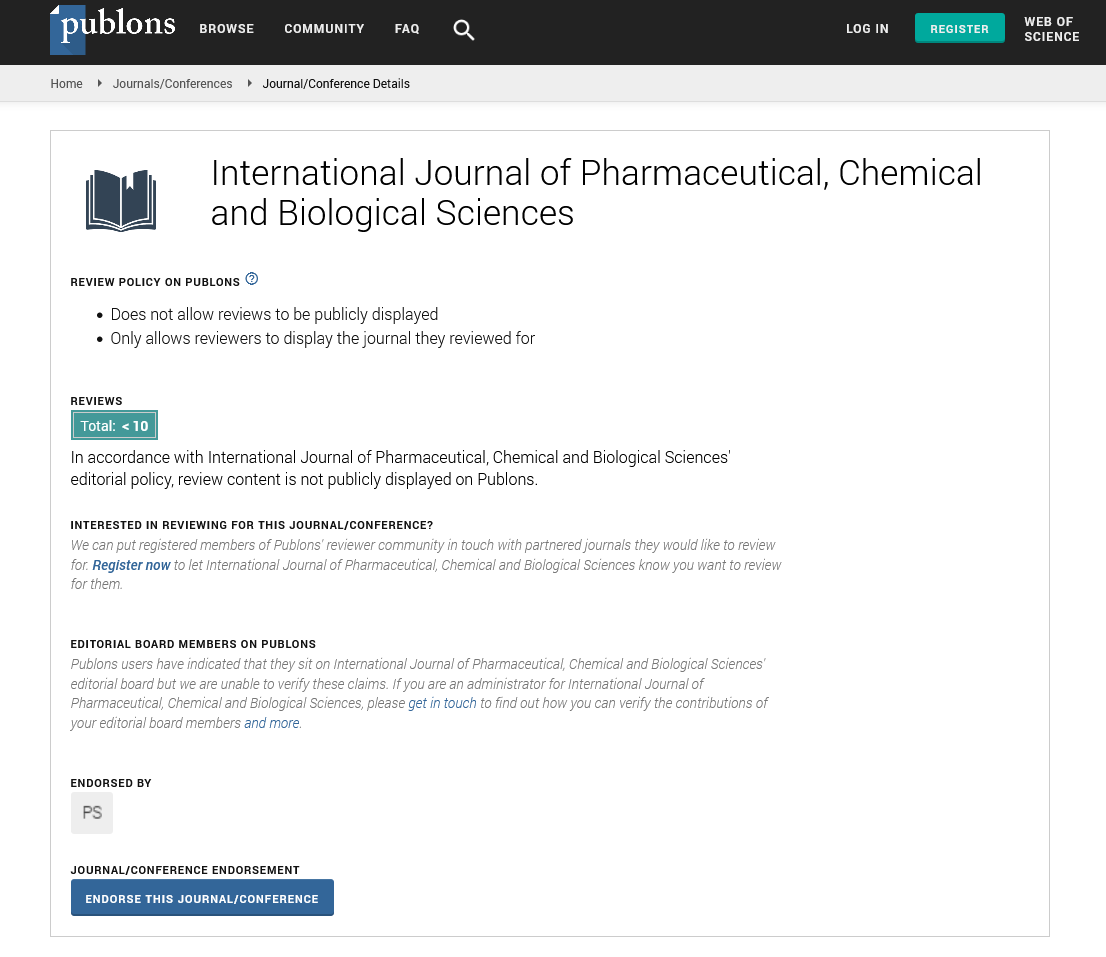Commentary - International Journal of Pharmaceutical, Chemical and Biological Sciences ( 2024) Volume 14, Issue 2
Tissue Culture: Cultivating Solutions for Agricultural and Medical Challenges
Patricia Smith*Patricia Smith, Department of Biotechnology, University of Michigan, USA,
Received: 29-May-2024, Manuscript No. ijpcbs-24-140231; Editor assigned: 31-May-2024, Pre QC No. ijpcbs-24-140231 (PQ); Reviewed: 14-Jun-2024, QC No. ijpcbs-24-140231; Revised: 19-Jun-2024, Manuscript No. ijpcbs-24-140231 (R); Published: 26-Jun-2024, DOI: DOI: 10.36648/2471-9668-14.2.10
Description
In the realm of modern agriculture and biomedicine, tissue culture stands as a groundbreaking technique with immense potential. From propagating elite crop varieties to producing life-saving pharmaceuticals, tissue culture offers a versatile toolkit for researchers and practitioners alike. Its ability to propagate cells, tissues, and organs in a controlled environment has revolutionized various fields, providing solutions to some of the most pressing challenges we face today. At its core, tissue culture, also known as cell or plant tissue culture, involves the growth and maintenance of cells, tissues, or organs in vitro, outside of their natural environment. This technique relies on the principle of totipotency, wherein certain cells possess the remarkable ability to regenerate into whole organisms under the right conditions. By manipulating growth factors, hormones, and environmental conditions, researchers can coax these cells to proliferate and differentiate into desired cell types, offering unprecedented control over biological systems. In agriculture, tissue culture has emerged as a powerful tool for the rapid multiplication of plants with desirable traits. Through micropropagation, researchers can propagate disease-free and genetically uniform plantlets from a small amount of starting material, such as a single shoot tip or leaf. This technique has revolutionized the propagation of elite crop varieties, allowing for the mass production of high-quality planting material with reduced risk of disease transmission. Additionally, tissue culture enables the preservation and conservation of rare and endangered plant species, safeguarding biodiversity for future generations. Moreover, tissue culture plays a crucial role in plant breeding and genetic engineering. By manipulating the growth conditions and genetic makeup of cultured cells, researchers can induce mutations, select for desirable traits, and introduce foreign genes into plants. This allows for the development of genetically modified crops with improved resistance to pests, diseases, and environmental stresses, as well as enhanced nutritional content. As global food security becomes increasingly threatened by climate change and population growth, tissue culture offers a sustainable approach to crop improvement, ensuring the resilience and productivity of agricultural systems. In the field of biomedicine, tissue culture holds promise for regenerative medicine, drug discovery, and disease modeling. By culturing human cells and tissues, researchers can study the underlying mechanisms of disease, screen potential therapeutics, and develop personalized treatments tailored to individual patients. Tissue engineering, a branch of regenerative medicine, aims to create functional tissues and organs for transplantation, offering hope for patients suffering from organ failure and degenerative diseases. Furthermore, tissue culture has facilitated the production of biopharmaceuticals, such as monoclonal antibodies and vaccines, through the cultivation of genetically engineered cell lines. However, tissue culture is not without its challenges and limitations. Maintaining sterile conditions, optimizing growth media, and controlling contamination are constant hurdles that researchers must overcome. Additionally, ethical considerations surrounding the use of human cells and genetic engineering raise important questions about the implications of tissue culture for society. Despite these challenges, tissue culture remains a cornerstone of modern agriculture and biomedicine, offering innovative solutions to complex problems. As we continue to harness the power of tissue culture, it is essential to balance scientific progress with ethical and environmental considerations, ensuring that this transformative technology is used responsibly for the benefit of humanity and the planet.
Acknowledgement
None.
Conflict Of Interest
None.

